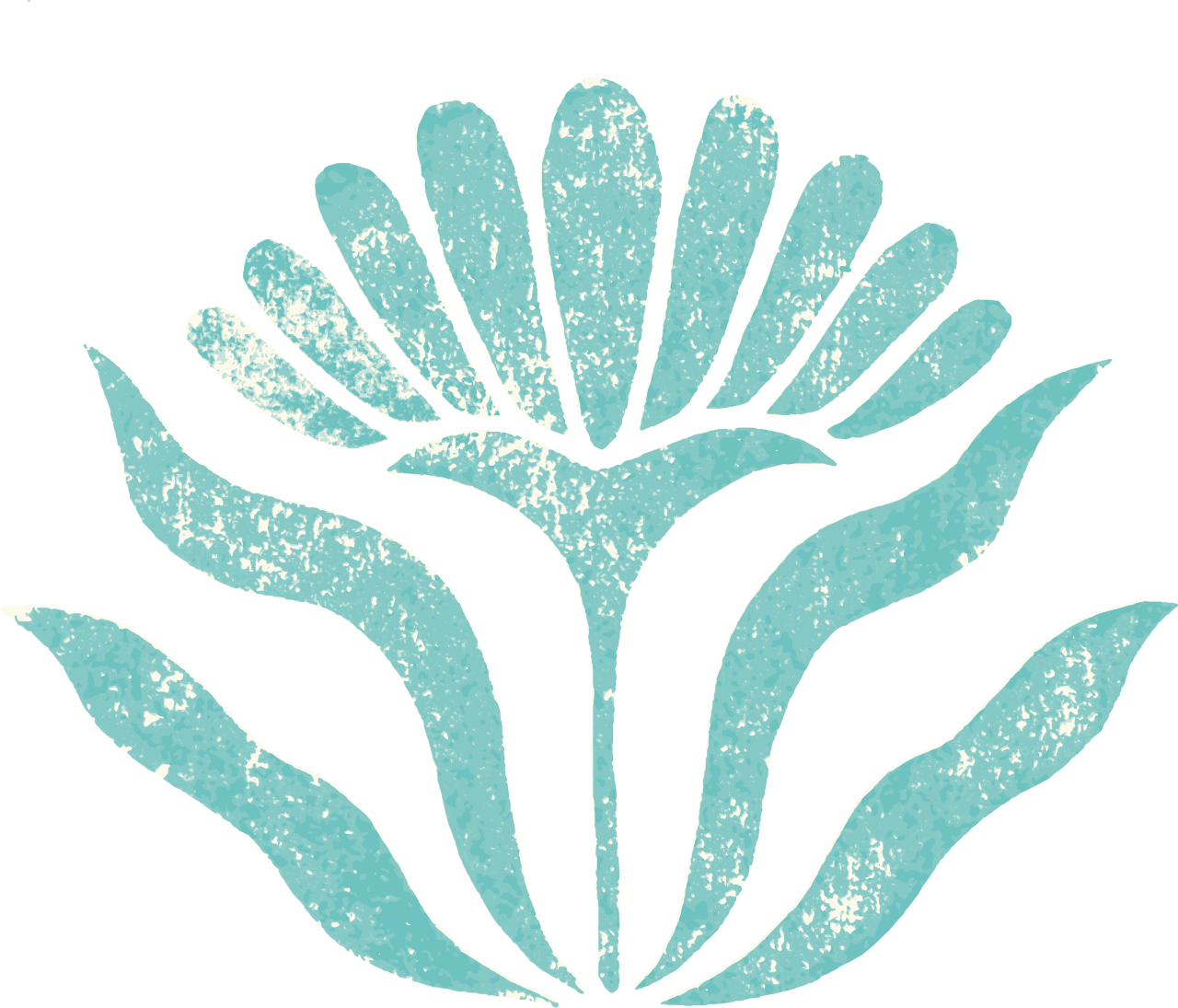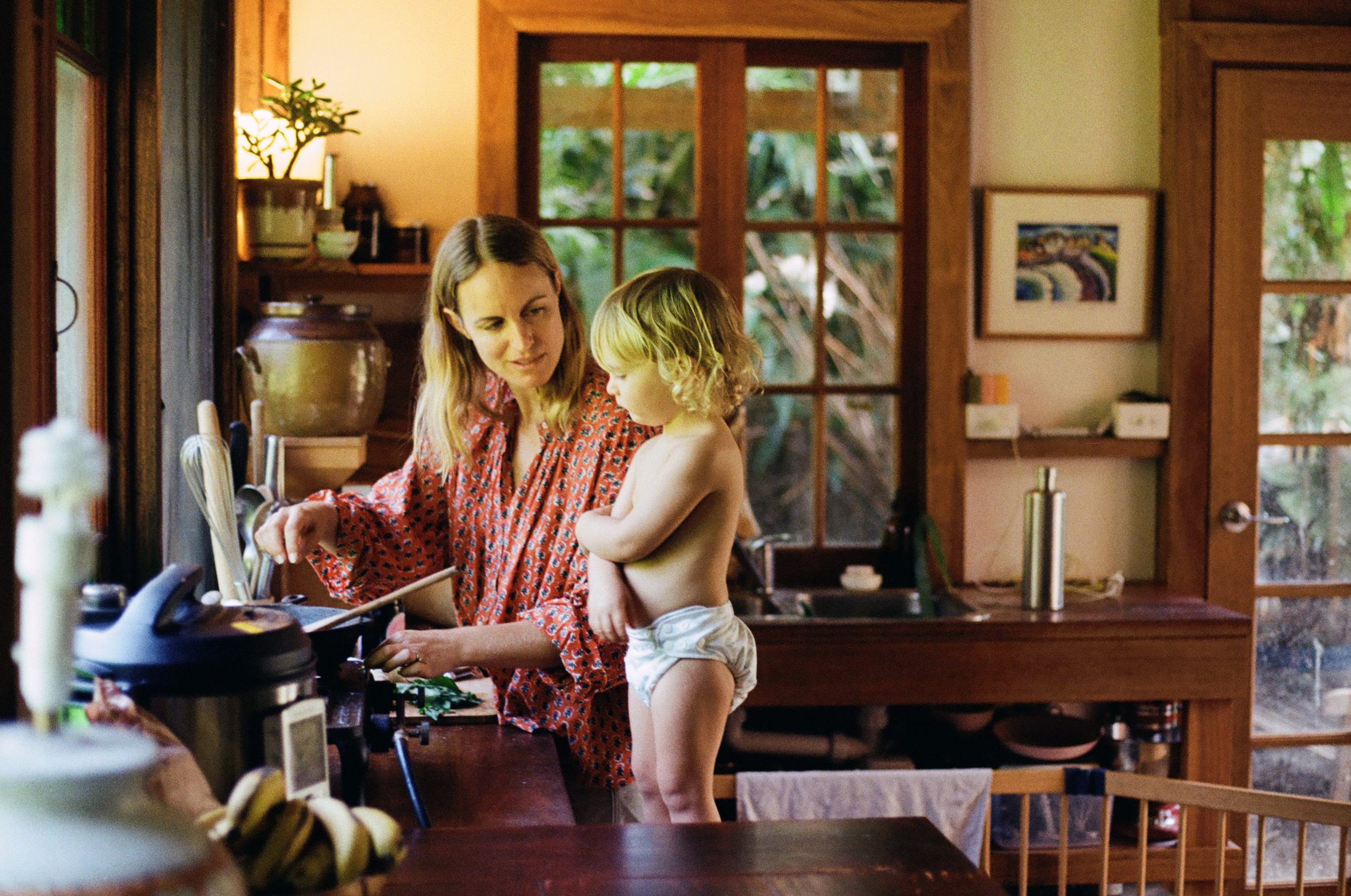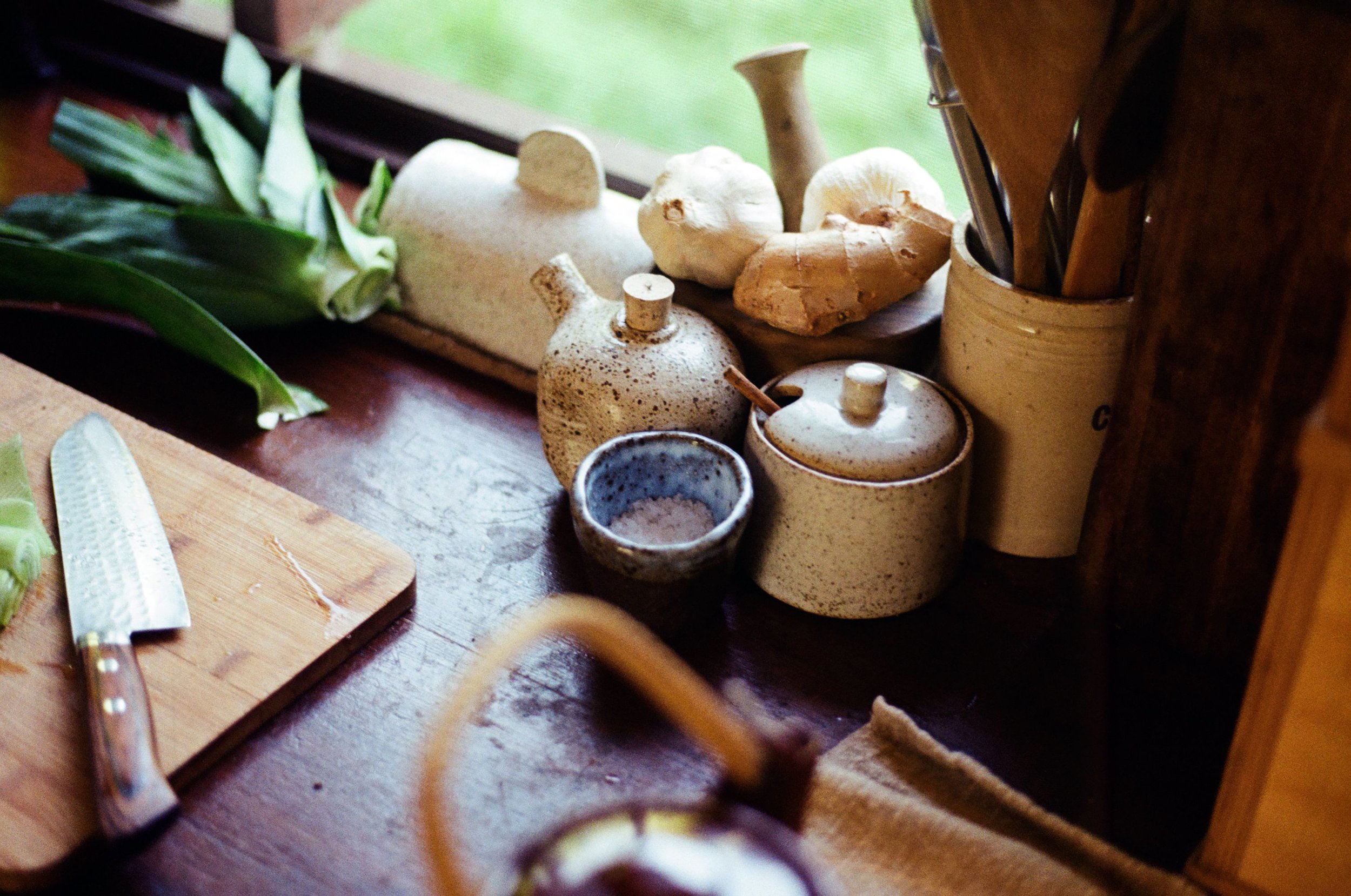In A Day With... Cass McCarthy
All images of Cass & family at their old home in Billinudgel (NSW,Australia) taken by Juliette Murray (@colourcaptured)
Firstly, are you able to tell us a little about you; where is your hometown, where are you living at the moment and what do you do ?
I grew up in Clovelly and have been living in the Northern Rivers for the last 7 years, however my family and I moved to Ireland at the end of December. Nick is from County Clare which is in the middle of the west coast. We have access to some family land over here so we thought we would make the most of the opportunity and follow our dream to start a small farm and artisan food business.
I’m in my final year of studying a bachelor of food and nutrition and have also been a full-time mum to our two year old son, Finn. Prior to that I was working on various organic farms. I recently started an instagram account and website called First Year of Food to share some whole food recipes and tips for nourishing young ones. It’s been a great hobby and I have met many wonderful parents along the way.
How do you usually start your day ?
My mornings begin at 4:30am most days of the week. My husband and I do a 30 minute meditation before sitting down to enjoy a pot of coffee together. It’s nice to be able to do this before our son and the rest of the world wakes up. After that we take it in turns to exercise. For me that’s either yoga, pilates or a beach walk, depending on how i’m feeling. Then it’s time for breakfast before the day really begins.
Morning rituals at home
What does your dream day look like ?
It would start in much the same way as it usually does.
Then I would spend the morning gardening before heading to the beach and jumping in the ocean. I’d head home for lunch and sit on the deck with a good book whilst watching an afternoon storm roll in. A little siesta, maybe another swim, afternoon drinks and sitting down for a home cooked dinner with friends would be the perfect way to spend the second half of the day.
Do you have any natural skincare favourites or skincare rituals ?
I’ve never been good at following a skincare routine and to be honest it’s never been something I have prioritised. I’m hesitant to slather on expensive concoctions of products promising eternal youth, be them ‘natural’ or not. I’ve tried various brands over the years and haven’t really stuck to any particular one. The most recent that I have tried is Biologi, in particular their rosehip oil. I’ve also used Mukti Organics and quite like their products too.
The most important thing you can do for your skin comes down to what you eat and drink. I stay well hydrated, try to eat a whole foods diet rich in antioxidants, cultured foods and collagen-rich, fatty cuts of meat. I wear a hat and avoid being in the sun during the hottest time of the day and try to get at least 7 hours of sleep each night.
Do you have a favourite scent ? If so, where does it take you ?
I am always in awe at the power of smell and its ability to transport you to the past. I have a few favourite scents that I wish I could bottle. The heady smell of jasmine flowering takes me to my childhood home in Clovelly. Onions and garlic sauteing takes me to the kitchen of that same house, my mum in the kitchen preparing dinner. Eucalypts, wattle flowers, freshly mowed lawn, hamilton sunscreen, BBQ’s sizzling away. I have too many to list and they all seem to take me back to my childhood.
Are there any food or health philosophies that guide how you and your family eat ?
I don’t follow any particular diet as such, but my food philosophy is to simply eat real food and minimise those that have been highly processed. I try to eat seasonally and include both fresh and fermented vegetables with our meals each day. We only source high quality meat and eggs from animals that have been raised outdoors, ideally regeneratively. Nothing goes to waste in our home and we utilise every part of the animal that we can; collagen-rich joints and marrow filled bones for making broth, organ meats for pate and gravies, tough cuts for braising and fat for rendering.
We eat whole grains and pulses which I try my best to soak and sour, however I always have a stash of tinned legumes on hand for quick meals. I eat dairy in small amounts (butter, kefir, yoghurt, raw milk cheeses) and always from grass-fed cows. Raw milk is legal in Ireland so I’ve started enjoying the occasional cup of milk. I also enjoy a glass of red wine with dinner every night. Most importantly I believe in intuitive eating and listening to what my body needs. If I feel like eating salty potato crisps then I will absolutely indulge in that craving and enjoy them with zero guilt. It’s all about moderation and a healthy mindset.
Has becoming a mother changed your views on health and “wellness” at all ?
My views on food and lifestyle haven't changed as I have been living this way for a number of years now. However it has changed my views on physical and mental health. Becoming a mother is so transformative. I found that it brought up past traumas and resulting insecurities. It made me question what type of role model I want to be for Finn and I realised that I needed to explore and heal from these experiences in order to be that person. I found a great psychologist and she has helped me enormously. I’ve also found that Finn has been the best motivation I’ve ever had to increase my fitness, something that is not my strong point.
What is your favourite way to move your body ? Does movement play a part in your everyday routine ?
I enjoy gentle exercises, stretching and using my body weight for strengthening. I’ve recently added 25 minutes of yoga to my daily routine and I am loving it. Pilates, walking, hiking and swimming are my favourite forms of movement. I am not a fan of gyms and the thought of putting time aside to exercise makes it feel like a chore, which is why I love gardening and farming. It incorporates strength training into your day to day life without it feeling like you’re doing a workout.
When do you feel your most beautiful ?
When I’m feeling strong. Usually at the end of a day spent in the garden, dirt under my fingernails, a little sunkissed and a little achy. Whether I’m still sweaty and dirty, have jumped in the ocean or had a shower, I always feel my best after days like these. I rarely wear makeup so I find that a little mascara and lip gloss go a long way too!
If you are feeling tired, stressed or just off, how do you come back to yourself ?
There are four things that I find help me when this happens. I like to spend a little time in nature, be it going for a walk or just sitting peacefully somewhere. Meditation always helps and I already practice daily, both morning and night. Water never fails to relax me, be it a swim in the ocean, hot shower or long bath. And lastly, sleep. I think people underestimate the power of sleep and how important it is for healing. I’ll have an early night or not set the alarm if I feel like I need to catch up on rest.
Are there any old-school natural remedies that you always have on hand for you and your family ?
Besides gargling with salt water if I have a sore throat, not really! It is something I would like to organise this year. I don’t even have a first aid kit which is probably grossly irresponsible of me now that I have a toddler at home. It’s not an excuse, but none of us have been sick in a really long time (touch wood), so I haven’t thought too much about it.
If there was one piece of advice that you could teach/instil in your son, what would it be ?
To be kind, respectful, open-minded and to always be true to yourself.
Treading lightly on the Earth is clearly very important for your family. I understand it can be overwhelming for someone knowing where to start when wanting to reduce their family’s environmental impact. Do you have any simple tips that you would like to share that people could implement into their daily life ?
I think it’s important to remember that forming new habits takes time. Making long-lasting changes doesn't happen overnight. It is easy to feel overwhelmed so start slowly and intentionally. Begin by making changes that you know you can easily implement into your life.
It may begin by simply swapping plastic water bottles for a refillable one, or remembering to keep a set of reusable cutlery and a mug in your bag. Other simple changes are to buy loose produce instead of those that are sold in nets or plastic wrapped, as well as buying pantry and cleaning supplies at bulk food shops.
Eating seasonally and locally as much as possible will help to reduce food miles. If composting your kitchen scraps is too much then consider getting a worm farm. Look at repairing damaged items before tossing them into the landfill and buying brand new. Buy second hand goods as much as possible.
I also like to think of the toolbox analogy. I’m always trying to learn new life skills to add to it. These include things like cooking, sourdough baking, fermenting, growing food, building, sewing etc. There are so many little things you can do that when done collectively can make a big difference. Sorry that was a very long-winded answer!
You and your family are moving across the other side of the world to Ireland from Australia! What are you looking forward to the most out of this move ? Any new hobbies that you are wanting to take up ?
Yes! I am currently sitting in an armchair next to the Aga with a nice cuppa. It’s worlds away from our life in Billinudgel. I guess I’m most looking forward to setting up the kind of life that my husband and I have always wanted for our family. I’m excited to be living in Europe and to have so many different cultures right on our doorstep. I’d love to learn how to knit and properly sew. I really hope I’ll find time to take them up. I’ll also be refining my gardening skills and learning how to grow and preserve food in a completely different climate. Oh and I am attending my first ‘mothers and others’ Gaelic football training this weekend, so we’ll see how that goes!
What scares you the most about your new adventure ?
I’m nervous about finally taking the plunge and setting up our own farm. It’s something I have dreamt of doing and have been working towards for close to 15 years now. It’s a massive commitment and we have a lot of hard work ahead. I wouldn’t say I’m scared, but I definitely have moments of feeling overwhelmed at the enormity of what lies ahead.
If you were to choose 5 ingredients to have in your kitchen, what would they be ? (Practical or impractical!)
Ooooh that’s a hard one! Hmm I think it would have to be flour, cream, salt, lemon and fresh herbs. I’m way too practical. Flour can be turned into bread, pasta and noodles. Fresh cream can be churned into butter. And herbs, salt and lemon zest/juice make everything taste good!
To part, are you able to leave us with a favourite recipe?
I know that it’s summer in Australia, but it’s the depths of winter here right now and this is the type of food I crave in this weather. Pork hock is usually sold cured and smoked so you will most likely have to order it from your butcher or farmer. It is incredibly gelatinous and tender when cooked for long periods of time. You can cook this in a slow cooker, however I’ve found the best results are when it’s cooked in the oven or on a stovetop over low heat.Cooking time will depend on the size of the hock. A large hock will feed 4 adults.
Cider Braised Pork Hock
Ingredients:
1 large fresh pork hock
Salt and freshly ground black pepper to taste
½ cup flour (any) for dredging, or as needed
2 tablespoons ghee
2 tablespoons apple cider vinegar
2 cups dry apple cider
2 cups chicken bone broth or stock
1 tsp fresh sage leaves, finely chopped
1 tsp fresh rosemary leaves, finely chopped
1 small yellow onion, diced
1 small carrot, diced
1 rib celery, diced
Method:
Preheat the oven to 160°C. Heat the ghee in an oven-proof pan over medium-high heat. Sear hock on both sides until coloured, adjusting the heat if necessary. When browned, reduce heat to medium and transfer the hock to a plate to rest.
Add onions, carrots, and celery to the pan. Cook and stir until softened and sweet, seasoning with a pinch of salt. Add vinegar and stir to deglaze the pan. Pour in the cider and chicken broth. Bring to a simmer. Add the sage and rosemary. Transfer the hock back into the pan and cover with the lid. Place in the oven and cook until the meat is tender and the bone is easy to remove, about 6-8 hours depending on the size of the hock.
Carefully transfer the hock to a plate. Bring the liquid to a boil over high heat and reduce the volume of liquid by about 60 to 70% or until the sauce begins to thicken up. Taste for salt and season as needed. Serve large pieces of tender hock with a generous spoonful of sauce, buttery mashed potatoes and tender greens.
All images of Cass & family at their old home in Billinudgel (NSW,Australia) taken by Juliette Murray (@colourcaptured)
















